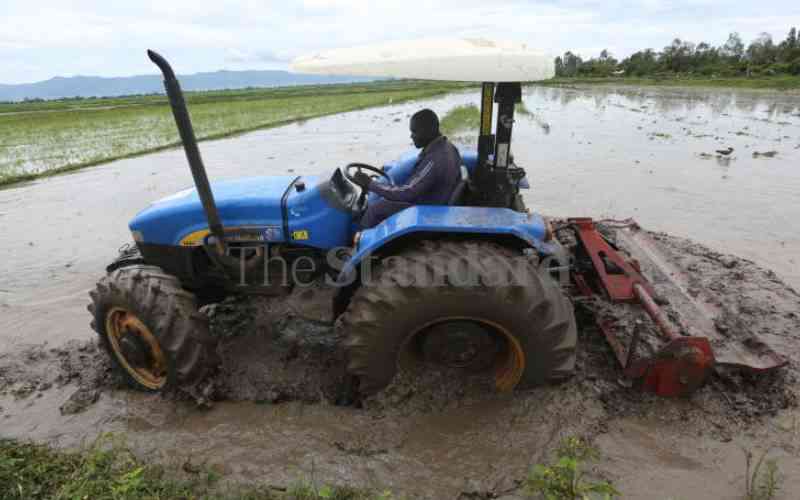×
The Standard e-Paper
Smart Minds Choose Us

Farmers and investors have been urged to step up mechanisation to make farming efficient, easier and profitable.
Amid the never-ending man versus machine debate brought back last week by influential tea pickers' unions in Rift Valley protesting against handpicking machines, farmers have been advised that quality mechanisation and modern technology present the future.